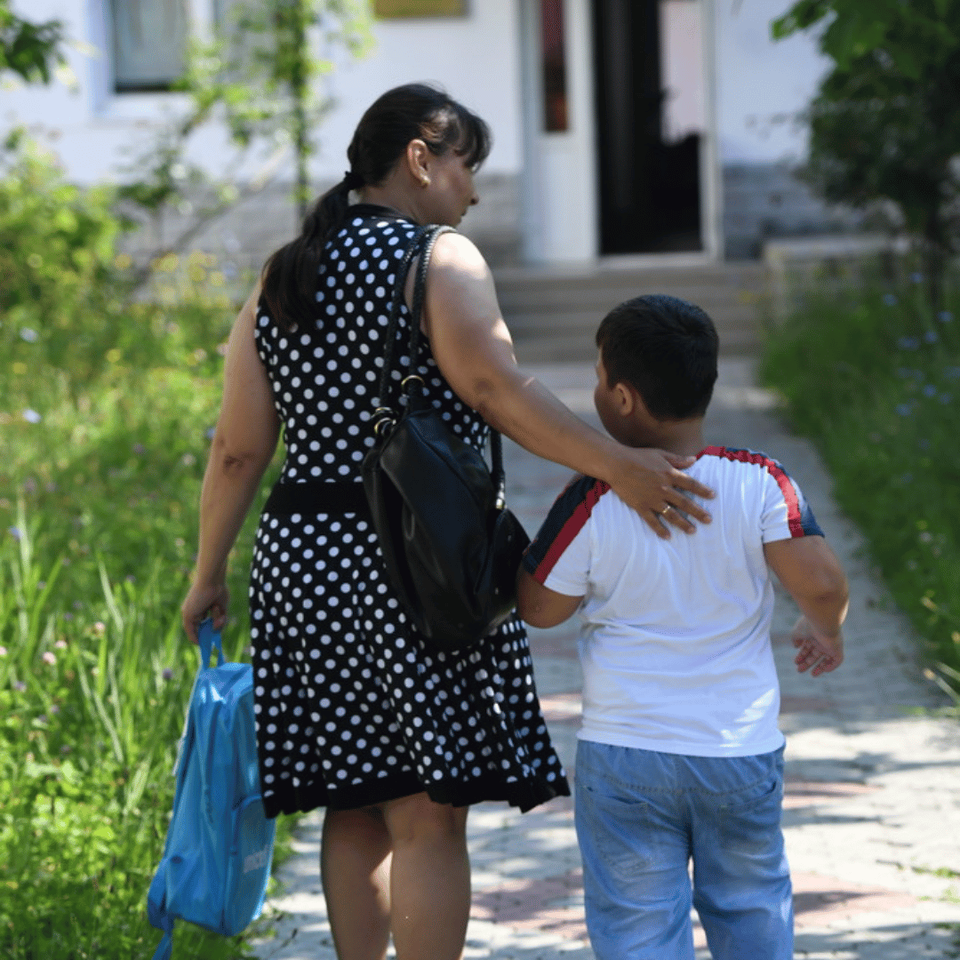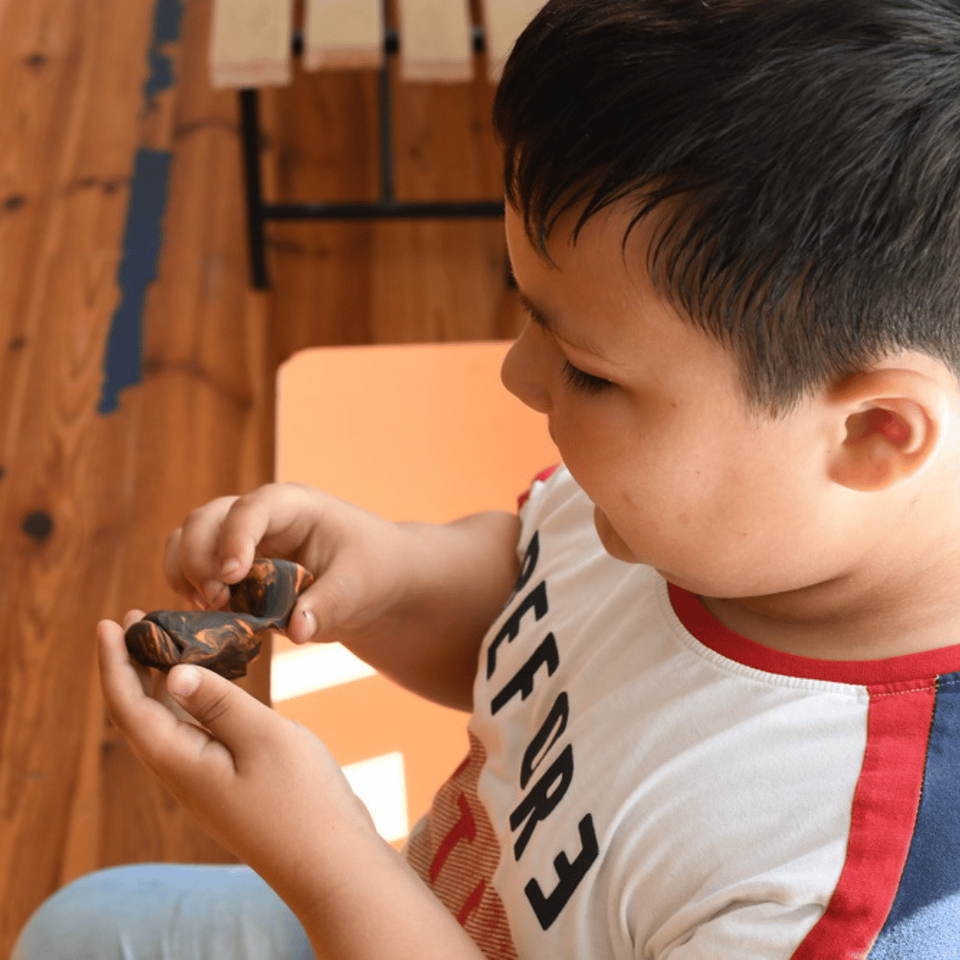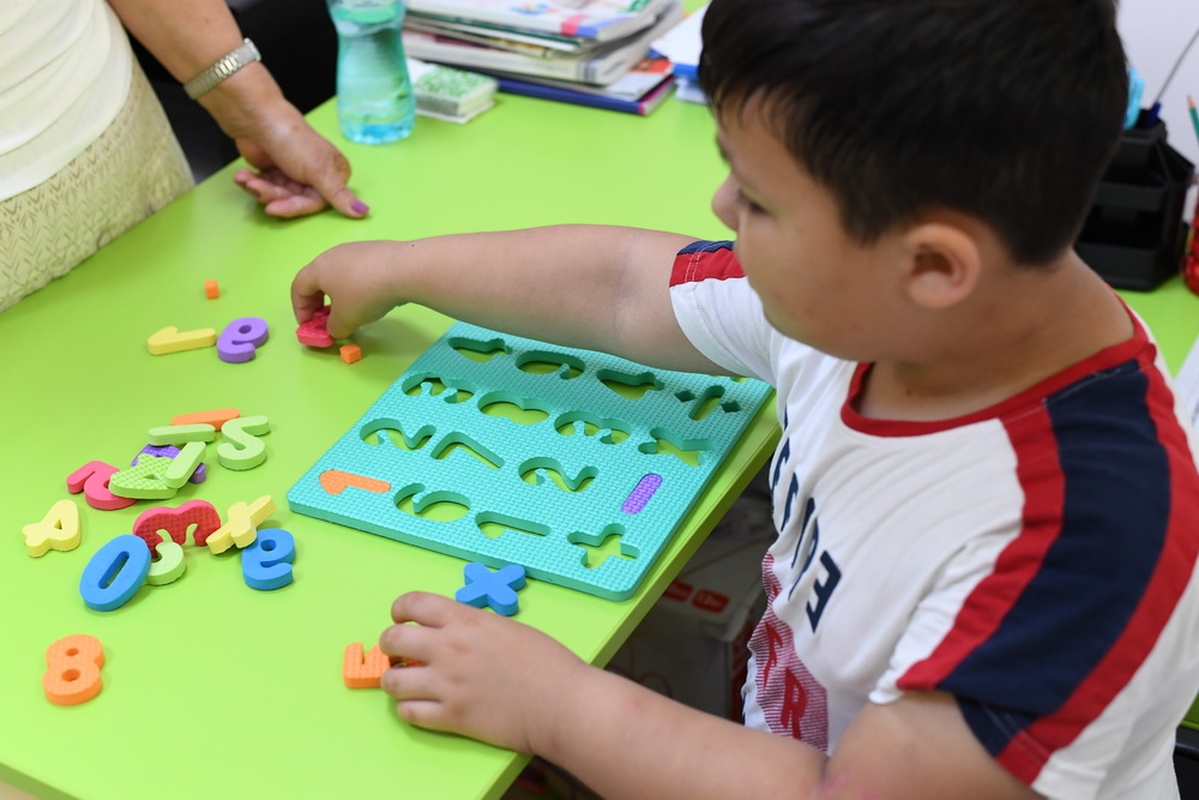When Dorin was eighteen months old, his mother Doina became concerned about the speed of his development in contrast with his peers.
Specialists diagnosed Dorin with autism and said that many of his issues would improve if actively addressed. Doina began to actively work with Dorin under their direction, but she was nervous about taking the next step of socialising him with other children. She was worried about how he might cope at the mainstream kindergarten his older brother had attended. At the Medical Centre one day, she heard about a special kindergarten, supported by Lumos, where speech therapists and psychologists could help children like Dorin.
It took Dorin a little while to adapt, but the specialists at the inclusive kindergarten developed tailored activities for him, and soon he was socialising well with a group of 38 children and participating in concerts and football championships.
Doina couldn’t believe the difference in her son. “He was given the time he needed to adjust, and it calmed him down,” she says. “Step by step, Dorin began to obey the rules – to play, to sit at the table for a meal. The teachers worked really well with him and explained everything carefully.”
“Dorin became an indispensable part of this group,” says the Director of the kindergarten. “And I’ve also watched his classmates grow more tolerant and friendly – we can definitely affirm that this kind of inclusion is beneficial for all participants.”

Now he is a little older, Dorin attends the Inclusive Education Unit at the high school opposite the kindergarten, which is also supported by Lumos, meaning that he can continue to benefit from the same tailored approaches, training methods and specialised services. The two schools work in partnership with staff from the high school, meeting and monitoring the progress of their future students while they are still at the kindergarten. By the time children join the high school, the specialist staff already know them well and can continue the work started in the kindergarten.
The Director of the kindergarten is grateful to Lumos: “Thanks to Lumos’s contribution we have developed inclusive practices, allowing us to achieve better results. We’ve learned how to work with children with additional needs and have become a stronger team, with a new vision. The most important thing is to set small goals for these children – we can achieve big results with small steps. It’s like we take wings.”

The kindergarten staff work not only with the children, but also with their families. They organise meetings to discuss the children’s development and there is also a mentorship system in place so that more experienced parents and carers can guide those with less experience. When Dorin first joined the kindergarten, Doina had a mentor. Now, she is a mentor for other parents and carers.
“We are blessed,” says Doina, “I can’t imagine what would have happened if this kindergarten and the Inclusive Education Unit didn’t exist. I wish there were as many of these schools as possible. I want to thank Lumos for their effort and investment in the Unit. The Unit also holds a big advantage for children who don’t have any special educational needs as it gives them the opportunity to interact with these children who might be different from them, to learn to accept them and to be their classmates and friends. In this way, we build an inclusive society.”



